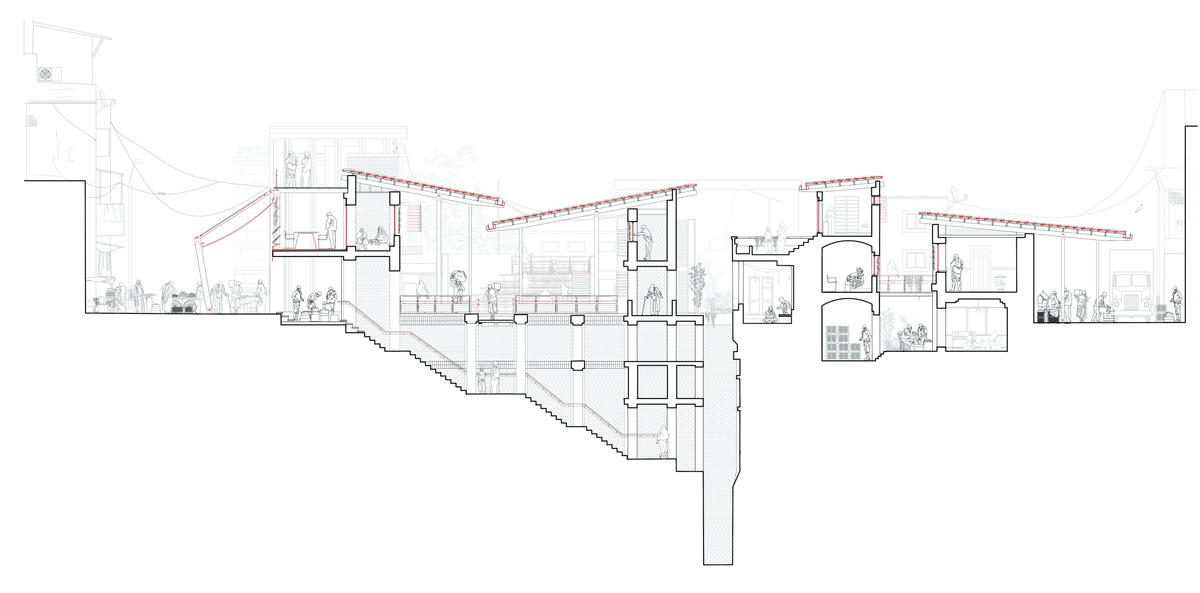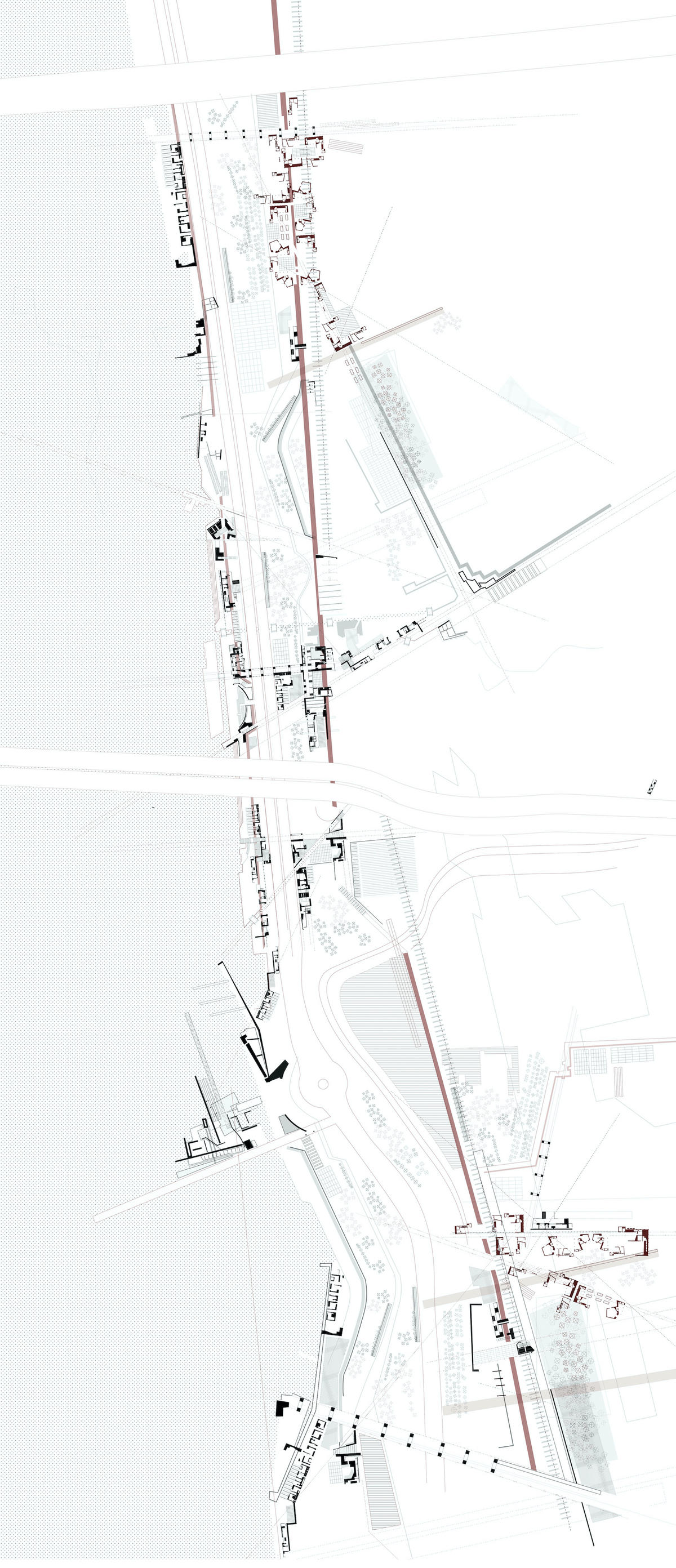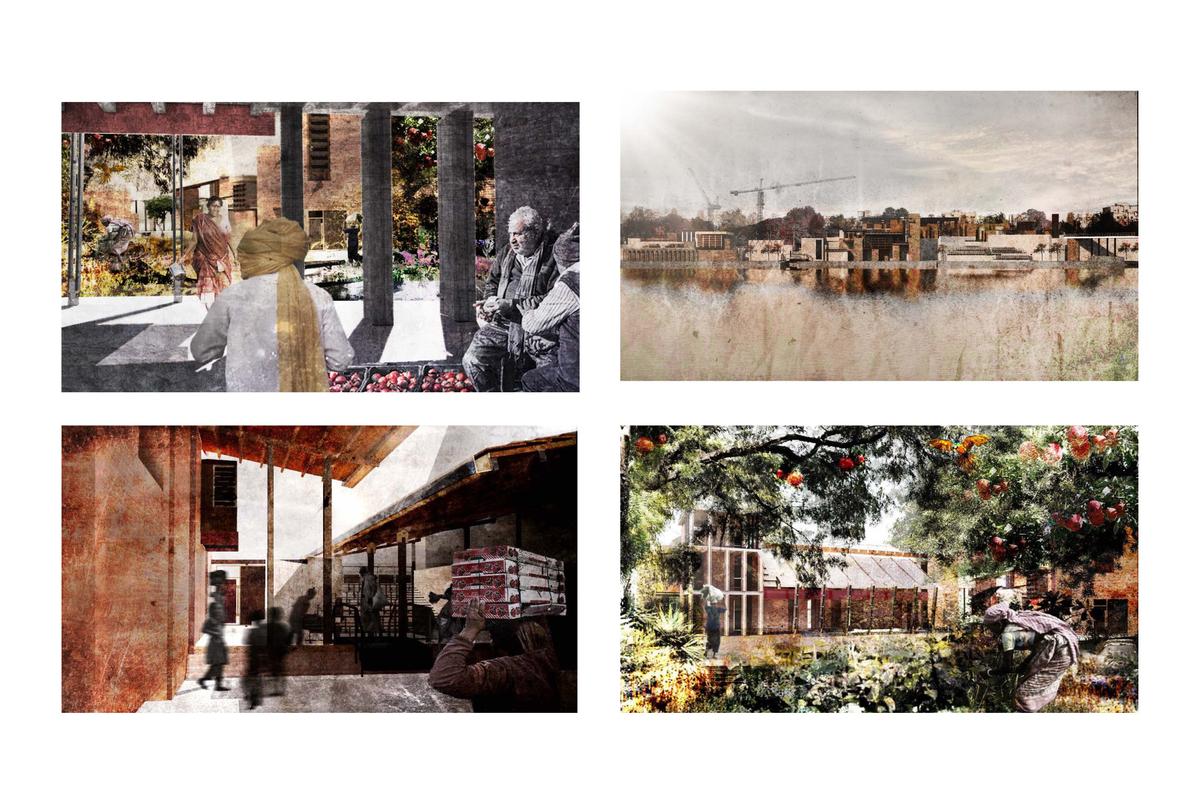Rachel Dunne
Paradise Pomegranate: Walls, Wells & Selling




![Transpositions at The Auction House Bridge [Body Scale]](https://ik.imagekit.io/af/https://architecturefringe.ams3.digitaloceanspaces.com/showcase/DUNNE-RACHEL_IMAGE1.jpg?tr=w-1200)

Transpositions & Mending Old Walls
Based on an architectural language derived from the pomegranate - of Skins, Membranes, Mesocarps & Seeds - the Auction House mediates the worlds of old and new Ahmedabad.
School/Level
Category
Year
Ahmedabad’s Old City is a ruptured pomegranate.
The thickness of the old city walls has been peeled back; its seeds have spilled to the periphery. Simultaneously fruit production is facing challenges due to inefficient post-harvest systems, poor irrigation and decentralisation. Large transport distances result in high wastage and reduced fruit quality, diminishing farmers’ profits. Paradise Pomegranate tests the potential of Ahmedabad’s old city walls as an instigator for reconfiguring Ahmedabad’s fruitscape, and its consequential role within the larger metropolitan network.
Visualising the [in-between] zone of the Old City Walls as both an inside and outside, three architectural agencies of Selling, Growing and Dwelling become the apparatus for forging fruitful interventions and creating conditions of continual wetness. The intensity of this liminal condition is transposed to the Sabarmati Riverfront Project, where vast openness offers potential for further cultivation. As the agencies emerge, so does the etymological link between Culture and Cultivate: tilling the land, and the acquisition of skills. Paradise Pomegranate does not aspire to utopian ideals, but gestures instead towards evocations of lushness and delight, rooted in the modest origins of the word Paradise in Old Iranian as a ‘walled enclosure’.
In Invisible Cities, Calvino writes: “‘My Empire has grown too far towards the outside. It is time’, the Khan thought, ‘for it to grow within itself,’ and he dreamed of pomegranate groves, the fruit so ripe it burst its skin…”. (73).